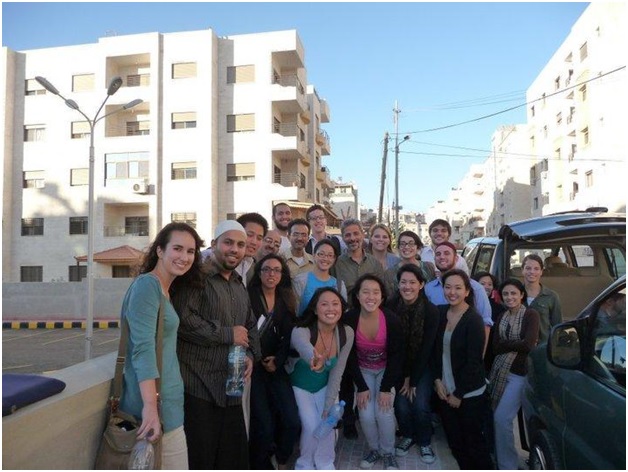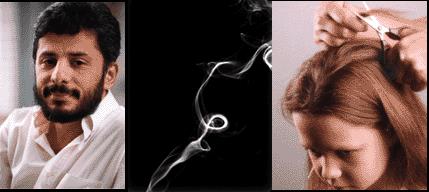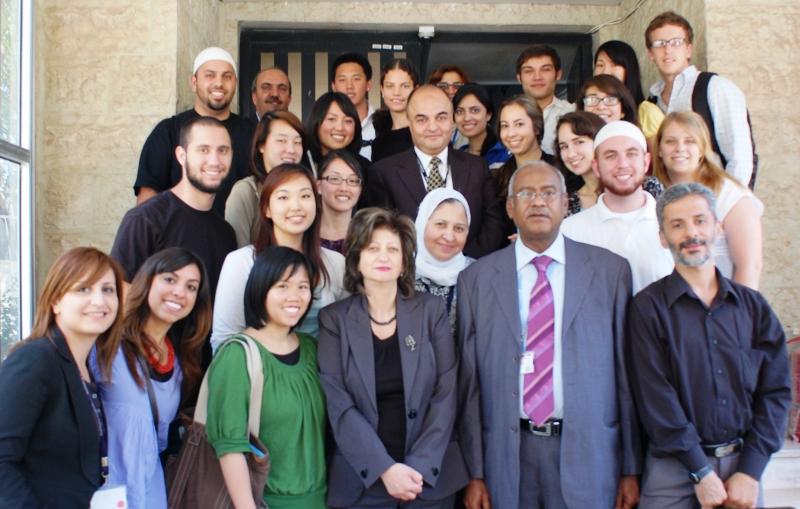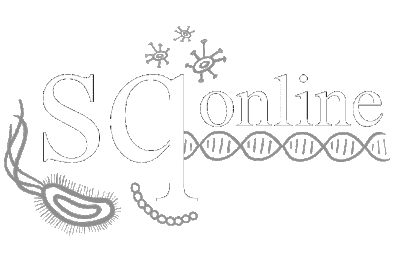By Arushi Atluri | UTS Staff Writer | SQ Online (2014-15)
New Zealand, Harvard, tobacco, chronic diseases, and Jordan – seemingly scattered phrases all connected by one name: Dr. Wael Al-Delaimy. As a professor in and the chief of UC San Diego’s Division of Global Health, Dr. Al-Delaimy is currently a multidisciplinary epidemiologist who paints a realistic portrait of the work involved in the newly blossoming global public health field. This novel field has now become one of the many paths that biology-oriented students can branch into, due to its symbiotic relationship with medicine and research. Dr. Al-Delaimy’s primary goal is to tackle the major global health problems facing humanity. No matter how much time and effort this might involve, he is passionate about his field and committed to his cause of “advocating for the health of the people, wherever they are and whoever they are.”

Dr. Al-Delaimy didn’t always know that he would go down the global public health track, though. Growing up in Iraq, he became a physician, as this was the greatest achievement one could attain. However, upon completing medical school and beginning to practice, he realized that medicine was not for him, especially because Iraq was under international sanctions and no medicine was allowed in the country, causing hundreds of deaths. “I realized, ‘this is not going to be a rewarding experience,’” recalls Dr. Al-Delaimy, “So I set my eyes on public health to understand the big picture. I could impact the population not at the individual level like a physician, but at the large population level.”
“I had the privilege of living and getting education in two worlds, that of the less developed and the more developed,” states Dr. Al-Delaimy. After leaving Iraq, he immigrated to New Zealand to obtain his PhD in Public Health, focusing on the hair nicotine biomarker to overcome problems in measuring secondhand smoke. He then went on to work as a research fellow at the Harvard School of Public Health. Regarding his moves and travels, Dr. Al-Delaimy says, “I appreciate both [worlds], and both had one thing in common: setting up high goals and persevering to achieve them.”
With lofty goals and his mind set on bringing a positive change to the world, Dr. Al-Delaimy decided to hone in on his tobacco research after finding that tobacco use is the leading cause of death in the world. Because his PhD work was on the hair nicotine biomarker, he recognized that hair and toenails are formed from the same type of tissue, so he developed a new approach for the nicotine biomarker: one that had to do with toenails. Dr. Al-Delaimy’s projects regarding these biomarkers have led to thousands of hair and toenail samples collected from individuals who are highly exposed to secondhand smoke to see how much smoke they are exposed to and to inspire policy changes based on the data obtained. In addition to tobacco research, Dr. Al-Delaimy has published work on chronic diseases, such as cancer, diabetes, cardiovascular diseases, respiratory illnesses and, now, mental health as it pertains to refugees. Although “some believe public health researchers should stick to the science,” he “feels strongly that public health researchers cannot do their science and ignore the suffering of millions if they can use their science to help them.” Currently, Dr. Al-Delaimy is focusing on global environmental epidemiology; he is working both with soil toxicants in Tijuana and collaborating with the Scripps Institute of Oceanography to study climate change and pollution in low-income countries.

Along with conducting numerous global research projects, Dr. Al-Delaimy teaches a global public health seminar in Jordan for pre-medical students. “Both my parents were … university teachers, and I was told I am good at explaining and public speaking, so that kept drawing me back to teaching,” says Dr. Al-Delaimy. The seminar sprouted from undergraduate student requests; aspiring medical and graduate students desired a “life-changing experience that would help them discover their full potentials and direct their future careers.” Taking these students’ wishes into account, Dr. Al-Delaimy developed a rigorous one-month seminar combining lectures highlighting basic population and public health aspects with clinical, hands-on experience with refugee populations. “I set a high bar for students enrolled in the program … those who perform exceptionally well ended up in medical schools and excellent graduate programs,” states Dr. Al-Delaimy. “This is the best part for me about the course.”

Although Dr. Al-Delaimy’s seminar is a hit and many undergraduate students have recently become interested in the public health major and global health minor, the global health field is still relatively new, and numerous career opportunities have just begun to emerge. However, Dr. Al-Delaimy is a prime example of how hard work, commitment and passion can lead to success in this up-and-coming field. He reminds students who truly care about the subject to always be diligent and continue to persevere and set high goals for themselves. “Being students at UCSD is a privilege that many around the nation and the world do not have,” says Dr. Al-Delaimy. “Make use of this experience to think big and to think about the welfare of the larger community, not just about your personal goals and careers. Live and let live and be a global citizen with positive change to the globe.”
[hr gap=”0″]
Image Sources:
- Al-Delaimy Research: http://www.hsph.harvard.edu/review/review_summer_02/677tools.html
- Last Day of Class: Dr. Wael Al-Delaimy
- Office Staff: Dr. Wael-Al Delaimy
